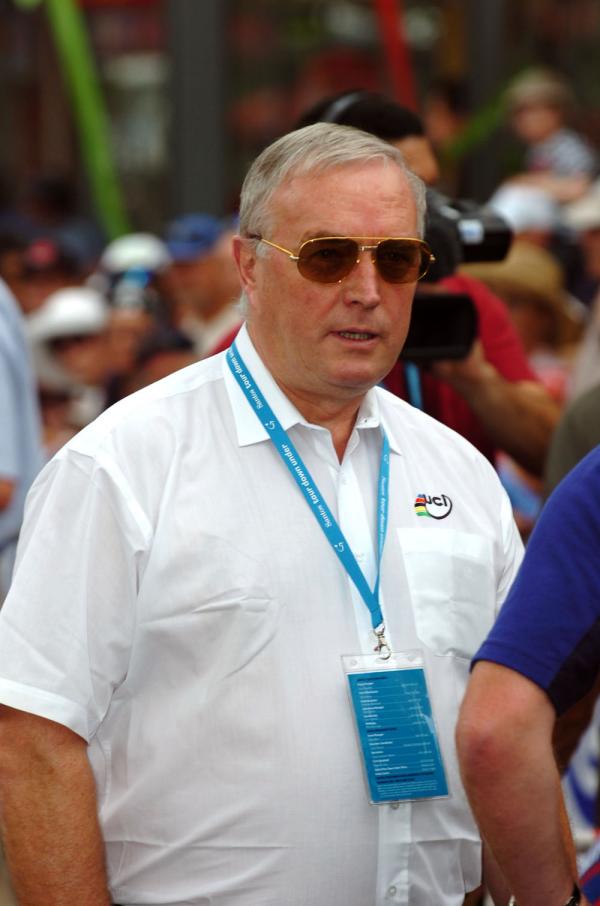McQuaid elected as member of IOC
Irishman willl remain in current role of UCI President

UCI President Pat McQuaid was elected today as a Member of the International Olympic Committee (IOC). The 60-year-old Dubliner was one of six candidates nominated for membership at the 122nd IOC session, held prior to the start of the 2010 Olympic Winter Games in Vancouver.
"I am deeply honoured to be elected as one of the IOC members and to represent and promote the interests of the IOC and Olympic Movement, in Ireland and elsewhere throughout the world," McQuaid said after he joined the other 114 members.
"I look forward to working with its President, Jacques Rogge and its members and to building upon the productive relations that I have already established with the IOC through my role as President of the UCI."
McQuaid follows the footsteps of former UCI president Hein Verbruggen in becoming part of the IOC. Verbruggen became a member in 1996 and was then made an Honourary Member two years ago. McQuaid succeeded him as UCI President in September 2005.
Rogge congratulated McQuaid on his appointment, and said that the IOC would benefit.
"I am very happy to have Pat McQuaid on board the IOC. As a former cyclist Pat knows the sport inside out and has done a tremendous job since his election at the head of the UCI. He has been instrumental in strengthening the reputation of the federation and rejuvenating the cycling programme at the Olympic Games.
"He brings a great expertise and we look forward to working with him in the future."
Get The Leadout Newsletter
The latest race content, interviews, features, reviews and expert buying guides, direct to your inbox!
McQuaid's new role will be complementary to his work in the UCI, and he will continue at the helm of the world governing body. Last September he was returned unopposed for another four-year term.
His initial four-year period in the role saw him have to deal with two major doping scandals in cycling, namely Operacion Puerto and the Floyd Landis positive at the 2006 Tour de France, as well as a long-running battle with the Grand Tour organisers over the UCI's ProTour series.
The latter was settled a year and a half ago, while last year saw few high profile positives in the sport. The UCI's biological passport is up and running and the governing body claims that this has greatly reduced the use of doping products in cycling.
The initiative is thought to have been a factor in his nomination by Ireland's other IOC member, Pat Hickey. That, his vice-president position with the Association of Summer Olympic International Federations and his election to the Executive Committee and to the Foundation Board of the World Anti-Doping Agency (WADA) in November of last year were all considered by the IOC as part of the election process.
McQuaid said that BMX and track racing were two examples of the work the UCI has carried out with regards to the Olympics.
"My new role will extend beyond cycling," he stated. "My objective is to replicate the success of the IOC's working relationship with the UCI which has contributed significantly to the enhanced professionalism and globalisation of cycling, while also resulting in the introduction of new Olympic disciplines.
"Our work to introduce BMX as a new Olympic discipline and to make several changes to the track cycling programme of the 2012 Olympic Games are case studies of how to improve the popularity of sport and how to attract young people to participate in sport," he claimed.
The modifications to track cycling have however been controversial, with many protesting at the dropping of events such as the individual pursuit, points race and Madison. McQuaid has said that the UCI had little choice due to the need to pare down the programme and make way for more women's contests.